Spiders are eight-legged arachnids known for producing silk through spinnerets and using their jaws with fangs to inject venom into prey. Most species are harmless to humans.
Wasp Spider Argiope bruennichi
Wasp Spiders build large orb webs in grassland which catch grasshoppers and crickets. Males often get eaten by females too so have to take care when mating. They often wait at the web's edge ready to pounce when the female moults into a mature form. At this time her jaws are soft so he is less likely to become a victim. Males are smaller than the females and pale brown.
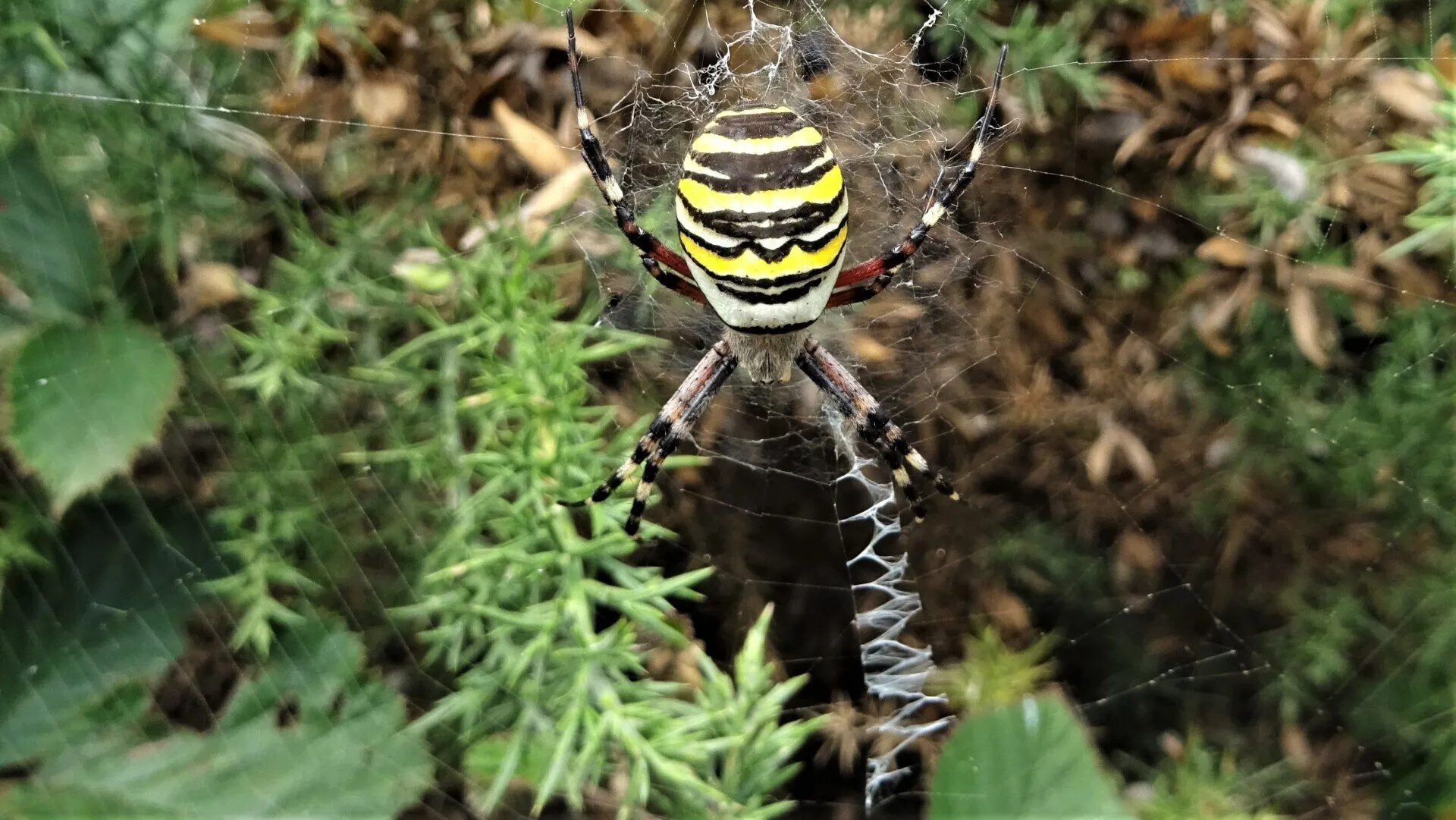
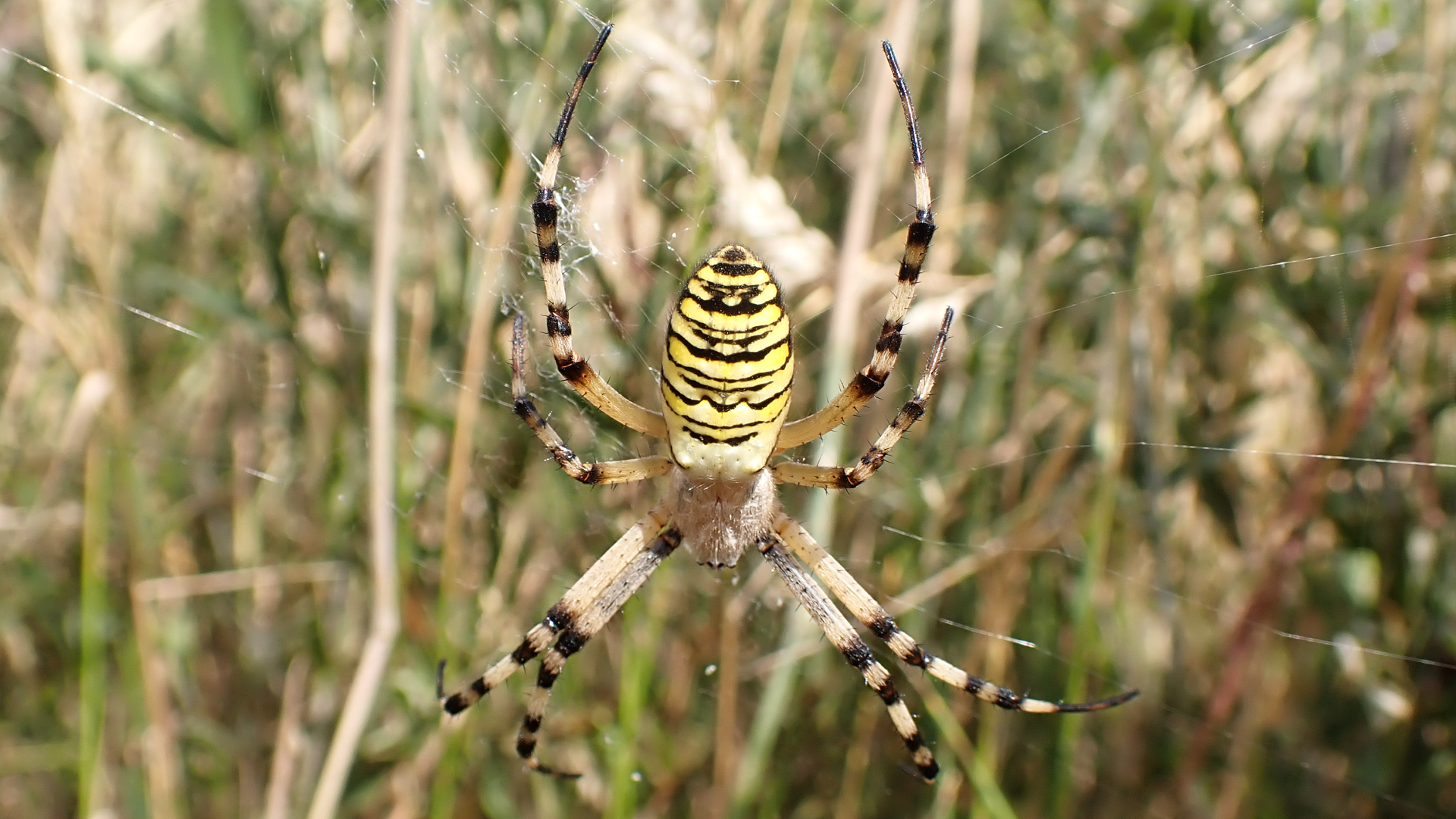
#
Buzzing Spider Anyphaena
Buzzing Spiders have two chevron marks on the abdomen. Males vibrate their abdomens against the surface of leaves to attract mates. The common name is derived from the buzzing noise they make. A common species usually found hunting on foliage, rarely on the ground.
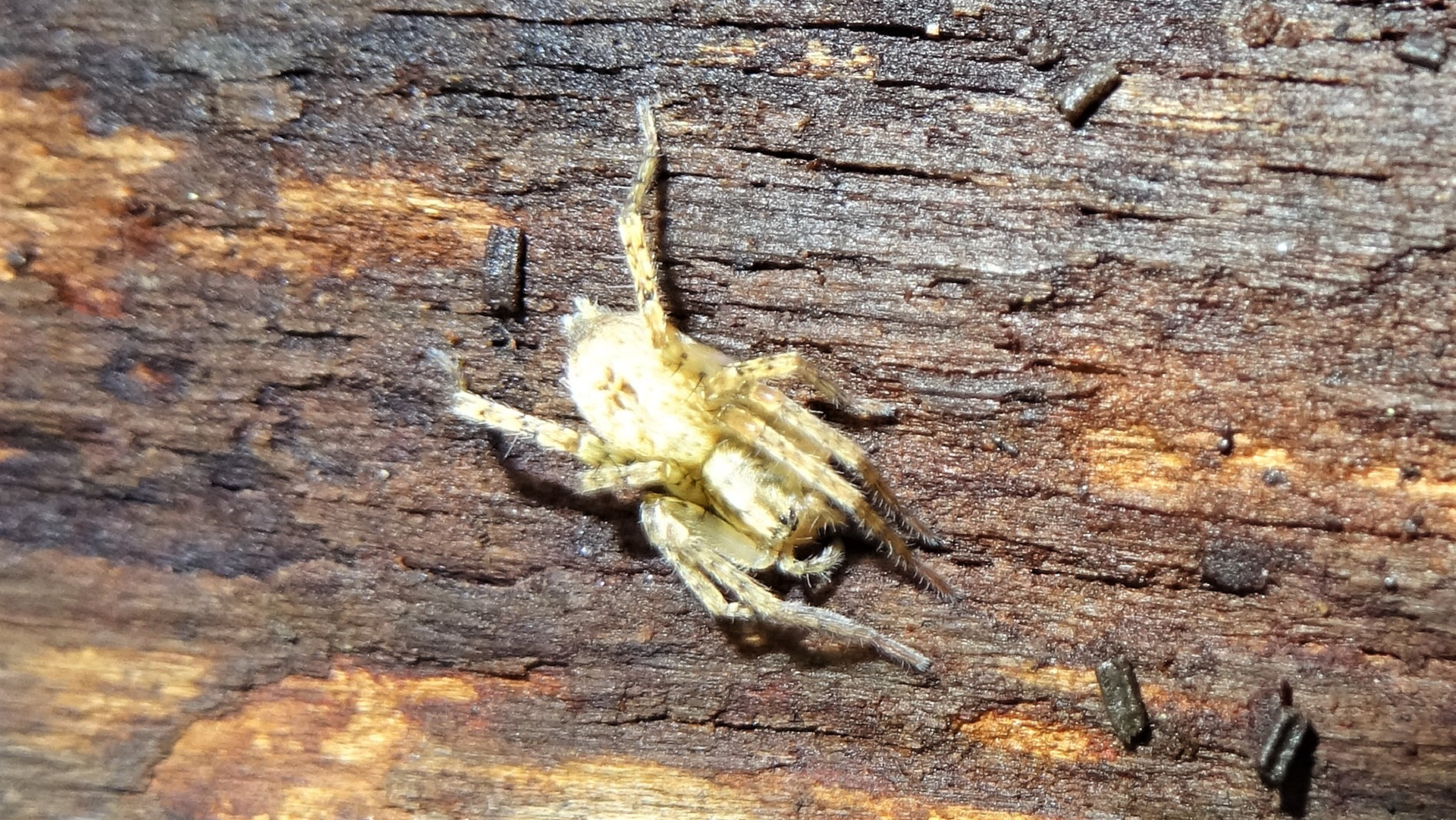
#
Garden Spider Araneus diadematus
Garden Spiders are a familiar sight during autumn when they make webs on hedgerows. If disturbed the spider vibrates the web until it becomes a blur presumably this is to bewilder potential predators. As well as being known by the alternative name of the 'Garden Orb-Web Spider', it is also referred to as the 'Cross Spider' due to the cross marking on the dorsal abdomen.
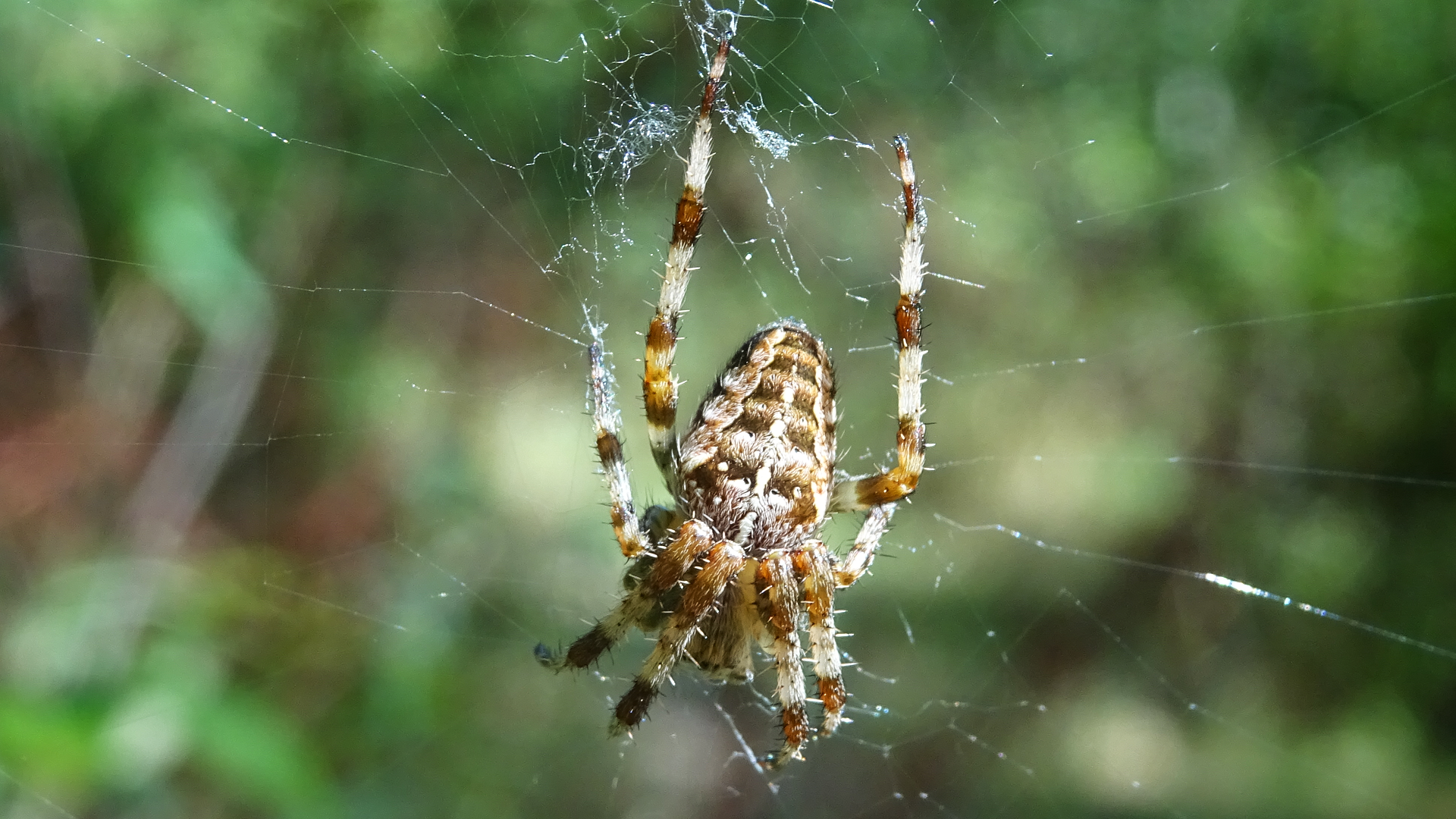
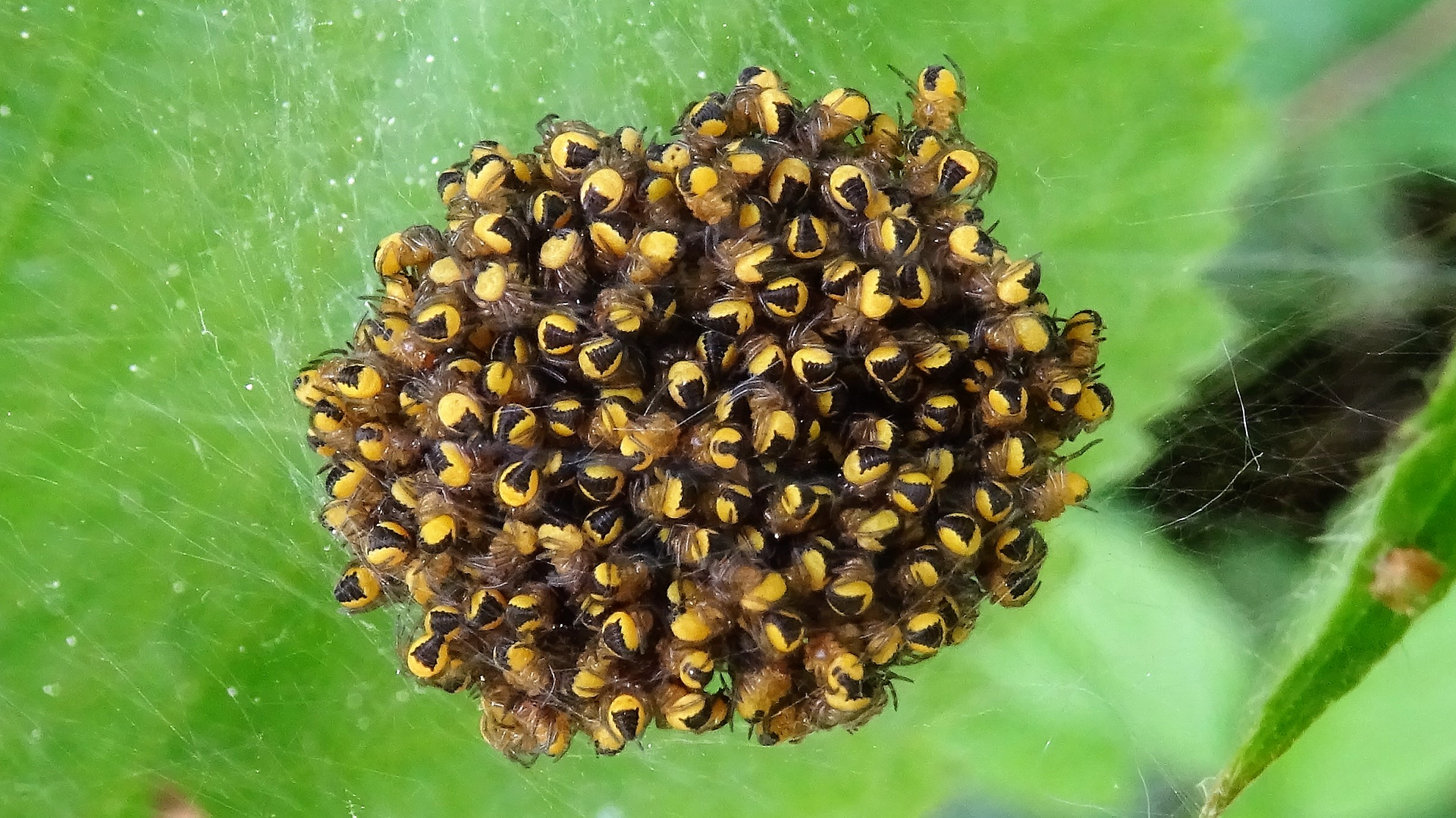
#
White Death Spider Misumena vatia
This species is frequently found on flower-heads during summer with front legs apart ready to ambush a passing victim. The spider grabs victims and subdues them with venom; it does not spin webs to catch prey. Mature females have the ability to change colour from white to yellow allowing them to blend in with surroundings. Harmless to humans.
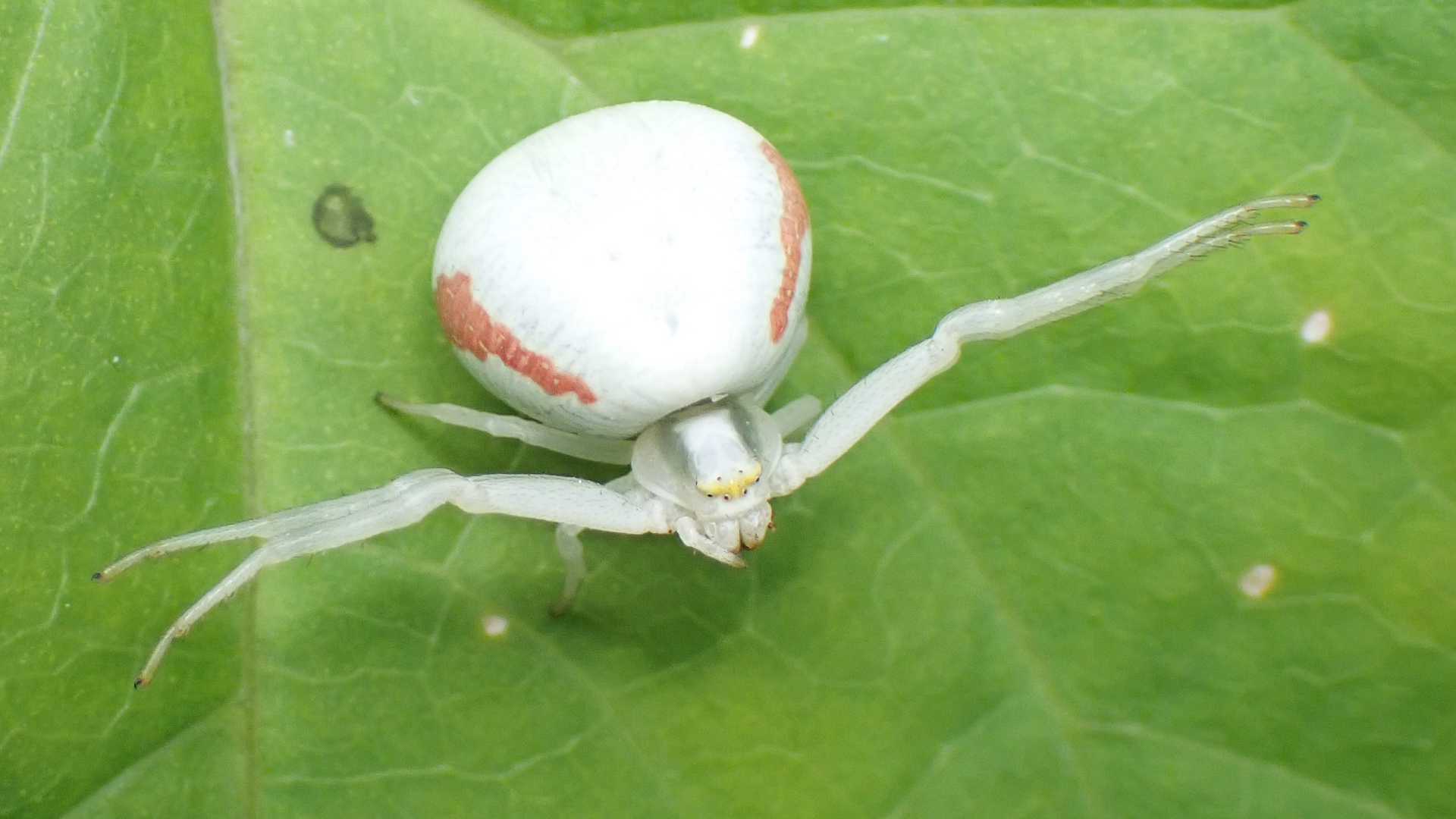
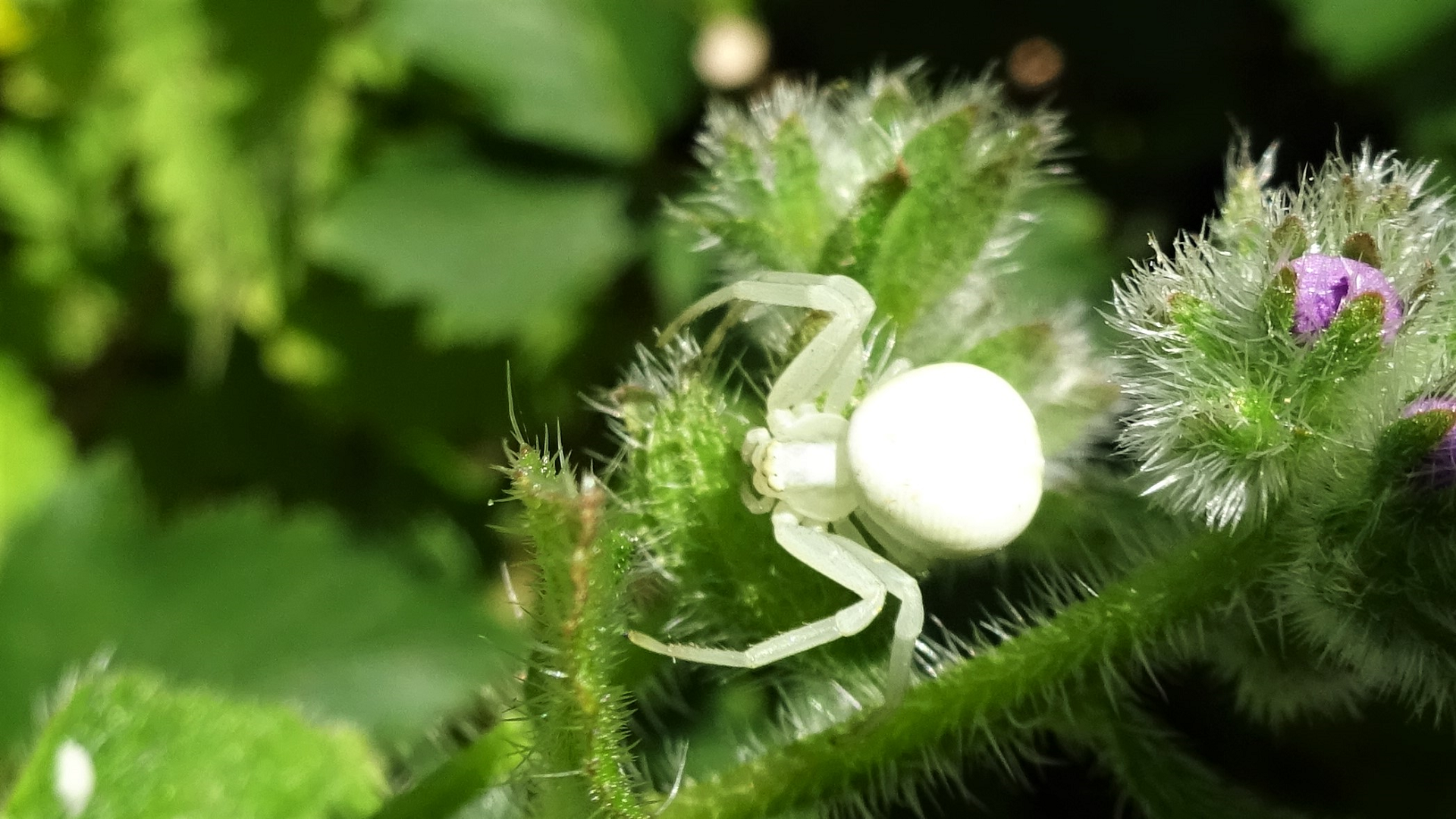
#
Nursery Web Spider Pisaura mirabilis
Nursery web spiders bask on brambles and nettles. They do not use webs to snare prey instead they prefer to sprint after and grab their meals. The female carries around an egg-sac until the time for hatching approaches. She then builds a webbed tent on vegetation which will provide protection for the young until they leave the nest.
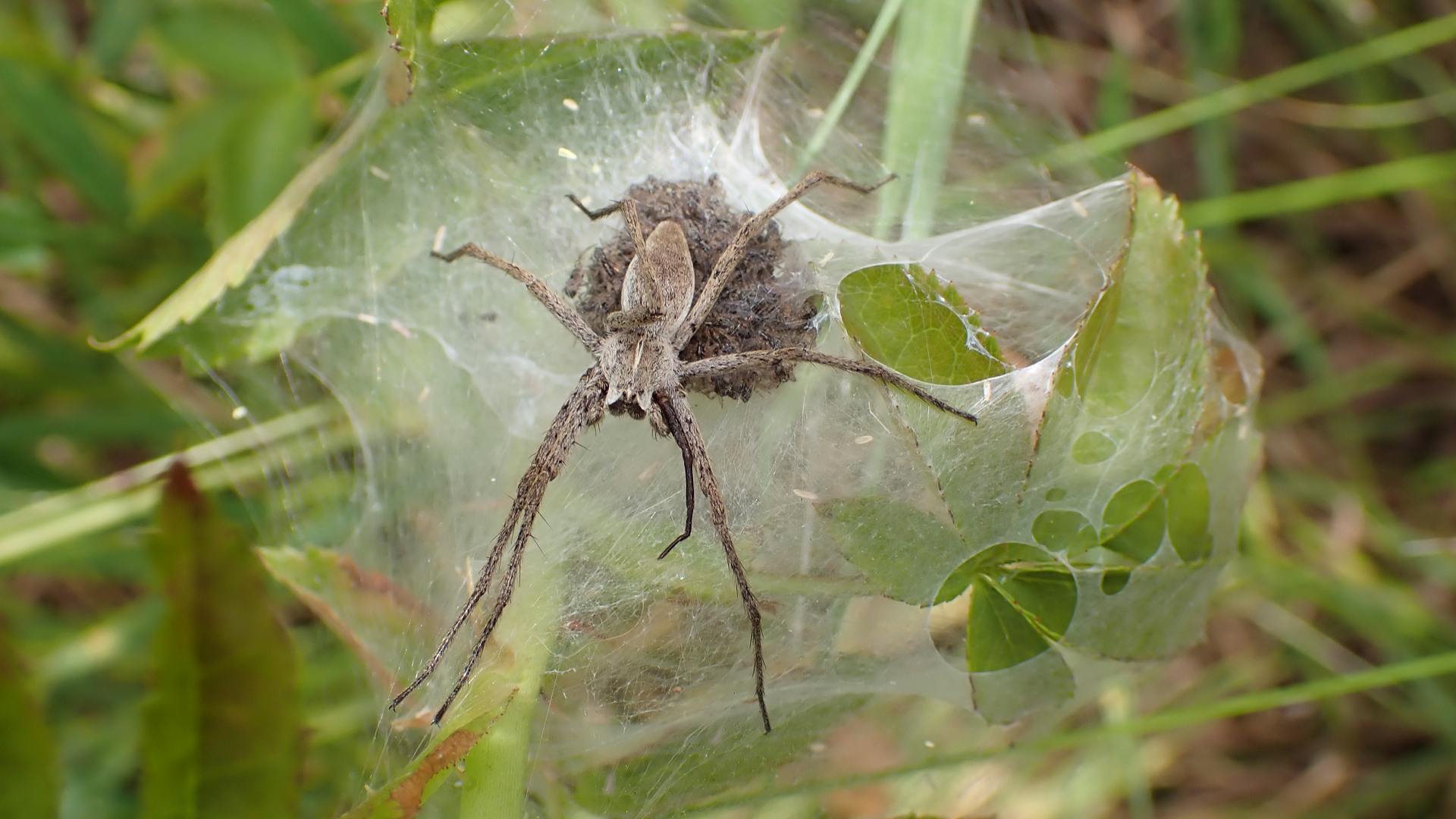
#
© hainaultforest.net. All rights reserved.

